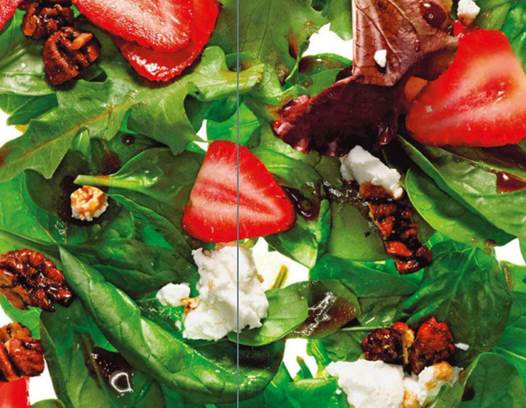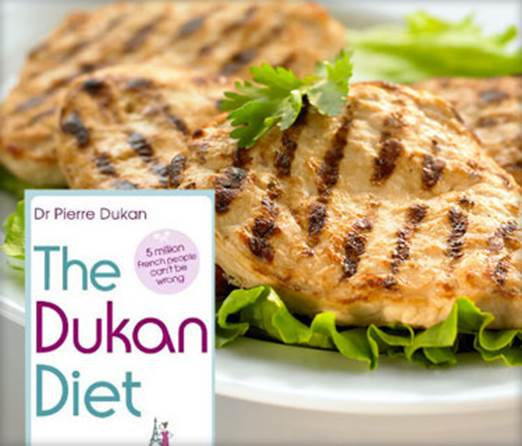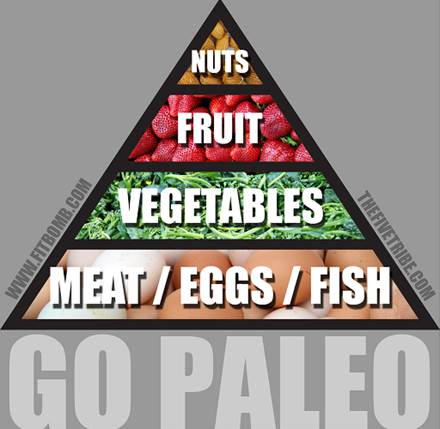From the Dukan to alternate-day
fasting, we test six of the most talked-about diets. After four weeks, have the
pounds propped off?
Every-other-day diet
§
Tester: Picture editor Ginny Henry, 43
§
Weight lost: 4½lb

Food fight
The plan:
Intermittent fasting could help you live longer and stay slimmer. First observed
by scientists in mice and, more recently, monkeys calorie restriction has been
found to reduce a hormone that causes ageing. The medical community is
skeptical, though.
The process: Alternate-day dieting involves eating whatever you want one day
(even high-fat foods are permitted) and restricting your intake to 500-600
calories the next (a ‘fasting’ day). I went for the more practical 5:2 plan
eating normally for five days and fasting for two. So my social life wouldn’t
suffer, I chose Monday and Tuesday to fast (you don’t have to choose
consecutive days), as those evenings tend to be quieter. I experimented with
having one filling meal at brunch (say, scrambled eggs with salmon and toast),
or breaking up the day with a morning cappuccino and massive Panini around 4pm.
Either way, it’s hard because I’m so tired and grumpy on fast days that meeting
friends is off-limits, as is pretty much any form of exercise.
The results:
I’m sticking to it. I love food and two days’ control is no hardship if I have
a free pass for the rest of the week. Plus, on my whatever-I-want days, I now
become fuller more quickly.
Dukan Diet
§
Tester: Beauty & health director Alice du
Parcq, 32
§
Weight lost: 8lb

The plan:
This controversial method is designed by Dr Pierre Dukan, a French nutritionist
who advocates a high-protein, low-fat diet and carefully chosen carbs (mostly
oat bran). The diet pushes your body to obtain energy from protein, rather than
the excess glucose in carb-rich foods, before turning to your fat stores for
fuel.
The process:
I was in ‘attack’ mode for seven days: no fat, no carb, no fruit or veg, lots
of protein and 1 tbsp daily of oat bran. Five days later just before I was driven
to a Kettle Chips binge – I hit phase two, where I could flip between
vegetable-and-protein days and protein-only days. I became so bored with bland
flavours that I resorted to chewing a square of chocolate then spitting it out.
After that, the maintenance phase seemed a welcome relief: six days on low-fat,
low-carb food (such as fruit and brown rice); and one day of 100 percent
protein to rev up fat-burning.
The results:
Cutting out sugars gave me energy, but the black of carbs bunged up my
digestion and the occasional glass of wine gave me a headache. The Dukan has
had lots of bad press, but it’s not too bad for you – there’s a vegetable quota
and low fat levels, but be prepared for boredom, repetition and an enormous
amount of time spent reinventing chicken.
Weight watchers
§
Tester: advertisement director, Kate
Wake-Walker, 30
§
Weight lost: 4lb
The plan:
After 50 years, Weight Watcher has modernised itself: there’s an app and an
online facility for tracking your progress. It’s based on a points system.
Foods have different values – for example, a skinless chicken breast equals
four points, while most vegetable and fruit are free passed with zero.
The process:
I was allocated 28 daily points (determined by my current weight and how much I
aimed to lose) and everyone is allowed 49 ‘bonus points’ for splash-outs during
the week. The reminder emails kept me focused and it was relief to avoid the
embarrassment of group weigh-ins by doing everything online. I prefer not to
tell friends I’m dieting, so my biggest challenge has been dealing with people
saying, “Oh come on one more!” I can feel very down after a couple of instances
of cheating, such as an extra cocktail or bread roll. And occasionally the
maths goes wrong, so I have me bonus points for weekends when I’m most likely
to slip up.
The results:
As long as your points tally, nothing is absolutely banned, meaning that you
don’t have to deprive yourself of a glass of wine after work on a Friday as
long as you adjust what else you eat accordingly. Inputting points into the app
on my mobile phone made me more conscious of what I was eating. Although I lost
weight, it did take longer than other diets I’ve tried. It’s slow and steady
but, so far, the weight has stay off, so I’m glad I was patient.
Nordiska DNA diet
- Tester: Health writer Helen Foster, 44
- Weight lost: 5lb

The plan:
Developed with scientists at Newcastle University, genetic testing (a swab is
taken from your mouth) determines a weight-loss plan for you by screening
variants of seven genes relating to appetite, muscle activity and metabolism.
The process:
I was told my so-called fat genes mean I lose weight slowly and absorb fat
quickly. The answer? A low-fat plan. The 1,300 calorie diet took a lot of
adjusting to. I was shocked by how much I could eat dinner even included carbs,
which I usually avoid in the evenings. Over all, I didn’t feel deprived, but I
did get an energy dip in the afternoons. Some fruit helped and the
no-biscuits-in-the-house rule stopped mindless grazing.
The results:
Things that work for others rarely do for me, so it was nothing short of
miraculous when the weight fell off. As it was tailor-made for my genes, I had
more confidence in it and didn’t lose come too and it all went back on. Since
then, I have struggled to get back into the routine, as you really need to
focus if you don’t follow it to the letter, it won’t work.
Paleo diet
§
Tester: Beauty & health writer Charlotte
Jolly, 27
§
Weight lost: 3½lb

The plan:
This diet goes back to evolutionary basics, extolling the virtues of
prehistoric eating (Paleo derives from the Paleolithic era). The premise is
simple: to return to a hunter-gatherer diet of meat, fish, fruit and
vegetables. That means no cereals, dairy, legumes (such as beans or lentils),
salt or sugars.
The process:
The basic rule is this: if our hunter-gatherer ancestors couldn’t get hold of
it, you can’t eat it. Daunted, I decided my one cheat be coffee. Initially, I
had a foggy, tired ‘diet head’ and craved sweets. However, after two weeks of
eating spinach omelettes, raw vegetables with guacamole and tuna salad, I’d
shaken my sugar obsession and my energy levels rocketed. I even began viewing
caffeine as a toxin and have now cut it out completely.
The results:
There’s no calorie counting or scales involved (phew!) and cutting out salt has
wider health benefits. But I missed porridge for breakfast and my sweet treat
of Greek yoghurt with Manuka honey – both of which would be considered healthy
on a modern menu. I also worried about depriving myself of nutrients (such as
the calcium in dairy products). Long-term, this diet becomes dull, but I have
acquired a whole new perspective, Walking around the supermarket, I’m now aware
of how reliant I’d become on convenience food. I don’t want to go back there.
Food swap diet
§
Tester: Promotions creative director Clare
O’Sullivan, 46
§
Weight lost: 5lb

The plan:
This diet book by health writer Peta Bee is a bible for common-sense slimming,
aimed at changing your eating habits. The basis is still ‘calories in, calories
out’, but the more informed your choices, the cleverer your (reduced) calorie
picks.
The process:
The science about food groups and belling helped me to make better choices
about what (and how much) I was eating. Tips on navigating different scenarios
were a revelation. Chicken Raisukaree – my go-to dish at Wagamama – has 1,276
calories by ordering Ginger Chicken Udon, which is a similar but nutritionally
savvier dish, without being left feeling deprived or hungry.
The results: The theory appealed to diet detective in me, but it’s not for those
who prefer strict regimes. Unfortunately, simply reading the book wasn’t enough
to impact on my waistline. But when I combined my new knowledge with calorie
counting (I used the MyFitnessPal app), the scales shifted in my favour.